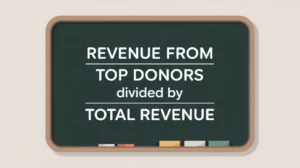Importance of International Financial Reporting Standards (IFRS)
International Financial Reporting Standards (IFRS) provide a globally recognized framework for financial reporting, enabling consistency and comparability across countries. This matters because many nonprofits operate internationally and must meet the expectations of donors, regulators, and partners in multiple jurisdictions. For nonprofits in social innovation and international development, IFRS facilitates cross-border accountability and strengthens credibility with multinational donors. Boards and leadership value IFRS because it enhances transparency and supports global operations.
Definition and Features
International Financial Reporting Standards (IFRS) are defined as a set of accounting principles and standards issued by the International Accounting Standards Board (IASB) that guide financial reporting globally. Key features include:
- Global Applicability: adopted or adapted by more than 140 countries.
- Principle-Based: emphasizes fair presentation, relevance, and comparability.
- Flexibility: applicable to nonprofits as well as for-profit entities, though with adjustments.
- Focus Areas: revenue recognition, asset valuation, financial instruments, and disclosures.
IFRS differs from GAAP in being more principle-driven and internationally harmonized, while GAAP is U.S.-specific and often more prescriptive.
How This Works in Practice
In practice, nonprofits adopt IFRS standards when required by host country laws or international funders. For example, an international NGO operating in Africa and Europe may prepare consolidated financial statements under IFRS to meet donor and statutory requirements. Finance teams adjust policies to comply with IFRS, and auditors assess compliance during annual reviews. Boards review IFRS-based reports to evaluate global financial health and make strategic decisions.
Implications for Social Innovation
For nonprofits in social innovation and international development, IFRS adoption enhances cross-border credibility and donor trust. Transparent reporting under IFRS reduces information asymmetry by providing stakeholders with consistent and comparable data across geographies. Donors value IFRS-compliant reports as they align with international standards, while nonprofits benefit from smoother collaboration with global partners. By implementing IFRS, organizations reinforce accountability and strengthen their role as trusted actors in systemic change across borders.







